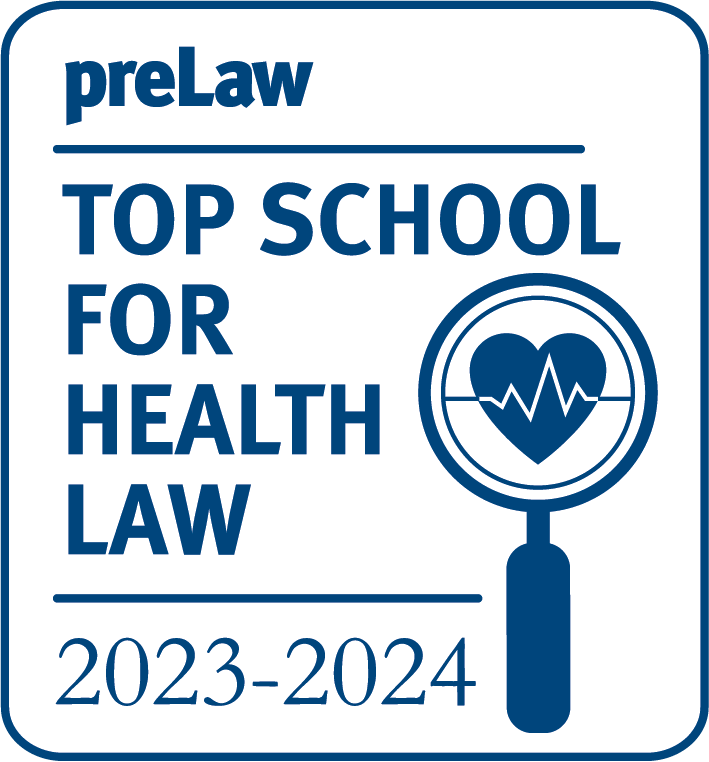A Grade
We received an 'A' in Health Law in 2023-24 and in 2022-23 from Pre-Law Magazine. The same publication named us a Top 10 School for Health Law in 2020.

The healthcare sector is set to become the largest and fastest-growing sector in the U.S. and Miami's Health District is a major center for hospitals, clinics, and biotechnology and medical research industries. Miami Law provides expertise for rising leaders in health law and policy with courses, joint degrees and clinical opportunities in the area. Miami Law’s innovative healthcare law curriculum prepares students for diverse career paths in law and healthcare, ranging from assisting indigent patients to representing biotech companies. Students in the Health Rights Clinic represent clients on Social Security, Medicaid, advanced directives, immigration, and veterans’ benefits matters. Our law school offers a health law concentration plus interdisciplinary opportunities through numerous joint degrees, including the recently added J.D./M.H.A. (Master of Health Administration) program. Attorneys with this legal background can work in a variety of capacities assisting physicians, hospitals, pharmaceutical and biotech companies, insurers, employers, and patients as they navigate health care laws and regulations.
We received an 'A' in Health Law in 2023-24 and in 2022-23 from Pre-Law Magazine. The same publication named us a Top 10 School for Health Law in 2020.

Our Health Rights Clinic is the first and only U.S. clinic to be part of the Latin American Legal Clinic Network, and it has a interdisciplinary partnership with the University of Miami Miller School of Medicine. The Human Rights Clinic is working to address maternal and infant health crisis in FL and advocating to expand Medicaid and improve the Family Planning Waiver Program.
Miami’s entrepreneurial climate has nurtured biomedical, medical device, and pharmaceutical companies, and is home to industry leaders. In South FL, the largest private employer is Baptist Health South Florida, and the University of Miami Health System affords law students many avenues for networking, internships, and externships.
*The healthcare law course list is not exhaustive and does not set out a path of study. Courses
Academic Programs and Concentrations
Clinics
Joint Degrees
International Opportunities
**List is not exhaustive and is intended to provide examples of past externships and internships.